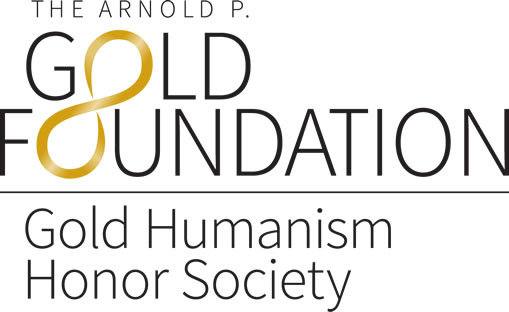About the Gold Humanism Honor Society

The inspiration for a Humanism Honor Society came from discussions that occurred among residency directors and other medical educators in the late 1990’s as they were looking for a way to identify senior students who truly excelled in BOTH clinical skills and interpersonal skills. Humanism includes attributes such as compassion, service, integrity, and respect. The Arnold P. Gold Foundation for Humanism in Medicine, which helped establish White Coat Ceremonies in over 95% of the medical schools in the US, led the way in a variety of efforts to recognize and further the cause of humanism throughout medicine and created the Gold Humanism Honor Society (GHHS).
The Arnold P. Gold Foundation for Humanism in Medicine defines humanism as the link between compassion and scientific competence. When practiced, humanism in medicine fosters relationships with patients and other caregivers that are compassionate and empathetic. It describes attitudes and behaviors that are sensitive to the values, autonomy, cultural, and ethnic backgrounds of others. The humanistic doctor demonstrates the following attributes (I.E., C.A.R.E.S).
- Integrity: the congruence between expressed values and behavior
- Excellence: clinical expertise
- Compassion: the awareness and acknowledgment of the suffering of another and the desire to relieve it
- Altruism: the capacity to put the needs and interests of another before your own
- Respect: the regard for the autonomy and values of another person
- Empathy: the ability to put oneself in another’s situation, e.g., physician as patient
- Service: the sharing of one’s talent, time, and resources with those in need; giving beyond what is required
The FSU College of Medicine GHHS Chapter was created in 2006 to recognize the top 10-15% of the graduating class who stood out as exemplars of humanism. With our founding members being selected and inducted in the 2006-2007 academic year, our university has a long tradition of recognizing excellence in humanism, including attributes such as compassion, service, integrity, and respect. Students who are chosen each receive multiple nominations from faculty and staff and their classmates in categories that assess caring, service, and clinical excellence. These are the students who students and faculty recognized as the person that the nominator would want to care for their own loved ones.


